The Food Vs Fuel debate is different this time.

The Food vs Fuel debate is not new. Every time food prices go up at the grocery store, media outlets, policymakers and environmental groups are quick to scrutinize the agriculture and biofuels industries. It happened in 2008 prior to the Great Recession and again in 2012, when drought and oil prices caused a spike in commodity prices.
So what is different now?
To answer that question, Paulsen Inc. surveyed 1026 consumers across the United States to better understand how Americans view the Food vs Fuel debate today.
Consumers aren’t blaming agriculture and biofuels
According to the survey, consumers blame the U.S. Government (36.9%), COVID-related supply chain issues (21.6%), the Russia-Ukraine conflict (10.6) and transportation costs (9.6) for increased food prices, whereas farmers and ranchers (1.7%) ethanol and biofuels (0.4%) and oil companies (3.9%) received minimal attention.
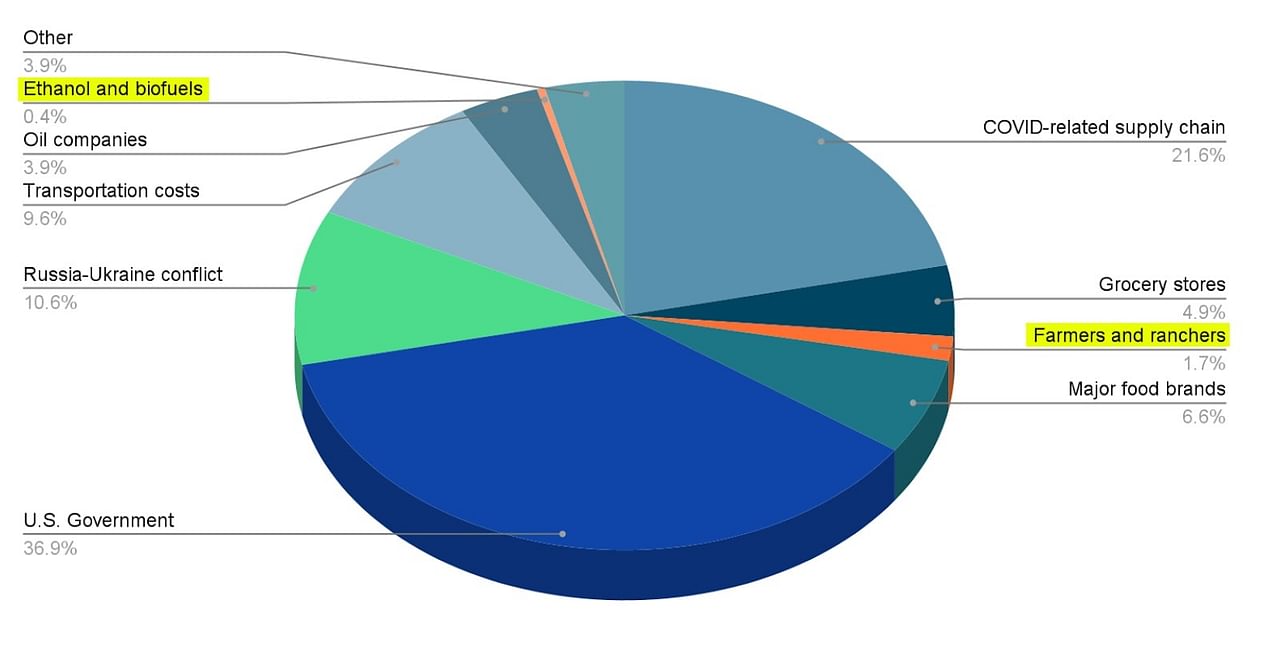
In your opinion, who (or what) is most responsible for increased food prices right now?
“Two years ago, many of these factors were not even on consumer’s radar,” says Mark Smither, Chief Strategy Officer for Paulsen. “Consumers are now very-much aware of how the pandemic, war and supply chain issues impact food prices.”
Consumers are also pointing a finger at major food brands (43%) and grocery stores (19%) when asked, “Who profits the most from increased food prices?” In contrast, farmers and ranchers (5%) are not seen as profiting.
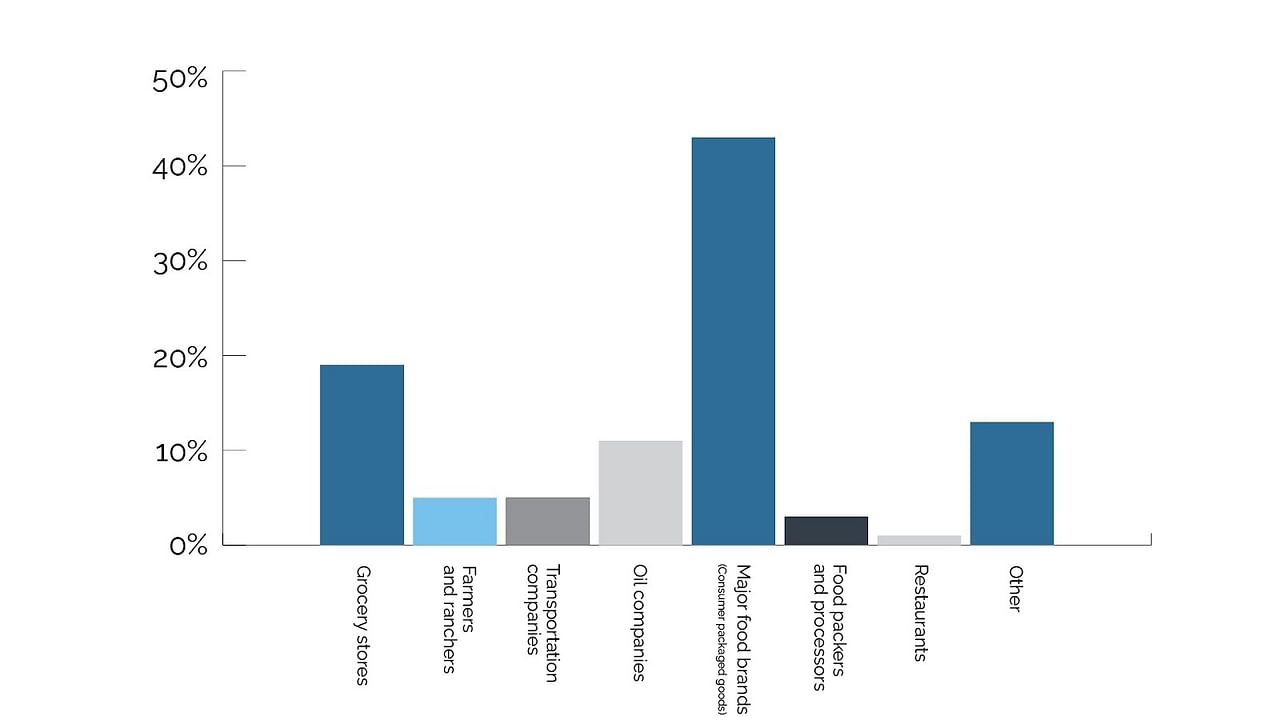
Who profits the most from higher food prices?
Consumers trust farmers and ranchers.
In terms of who consumers trust most when it comes to understanding important issues like food availability and food prices, farmers and ranchers topped the list (22%). It should be noted that political affiliation did not seem to matter: 22% said they trusted Republicans on the subject and 25% said they trusted Democrats, whereas 46% of the respondents said neither.
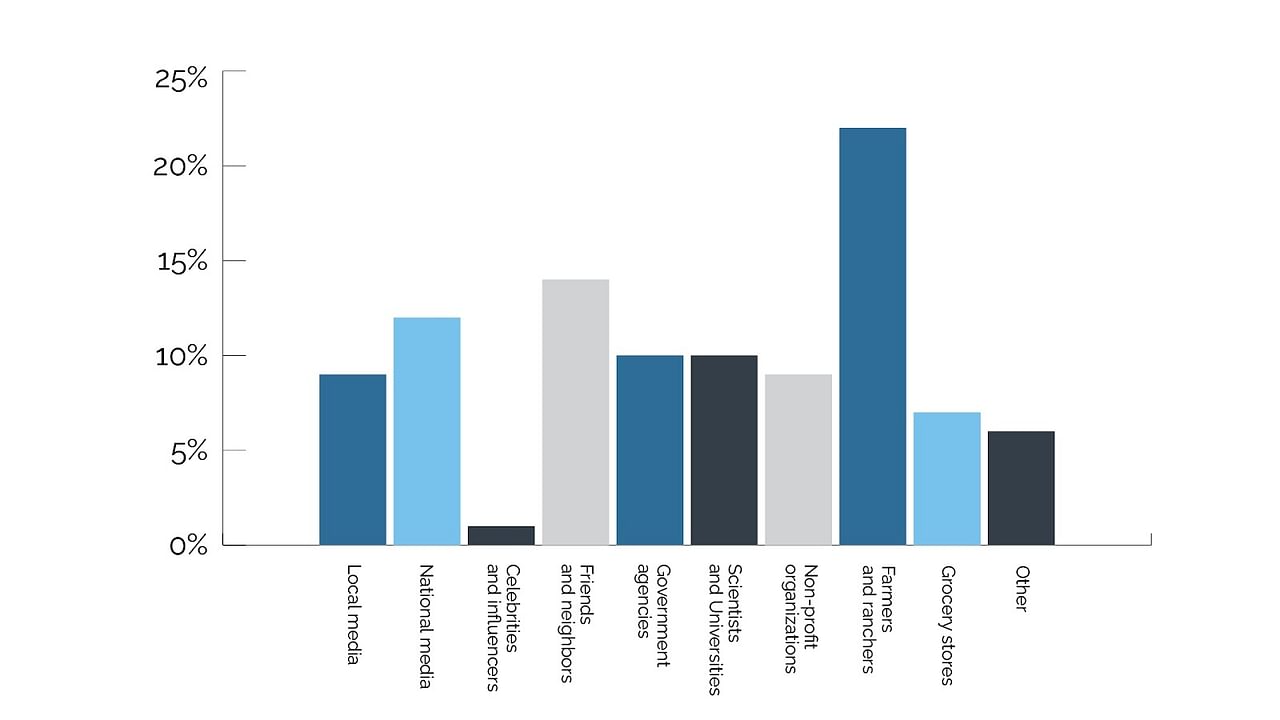
Who do you trust most when it comes to understanding important issues like food availability and food prices?
Food Security and National Security are More Important Now.
The survey explored several different agreement statements to determine which messages resonate with consumers. Two messages, in particular, provide the best insight to how the agriculture and biofuel industries can best frame the Food Vs Fuel narrative.
American farmers are capable of producing enough food to feed the world AND produce enough biofuel to meet consumer demand.
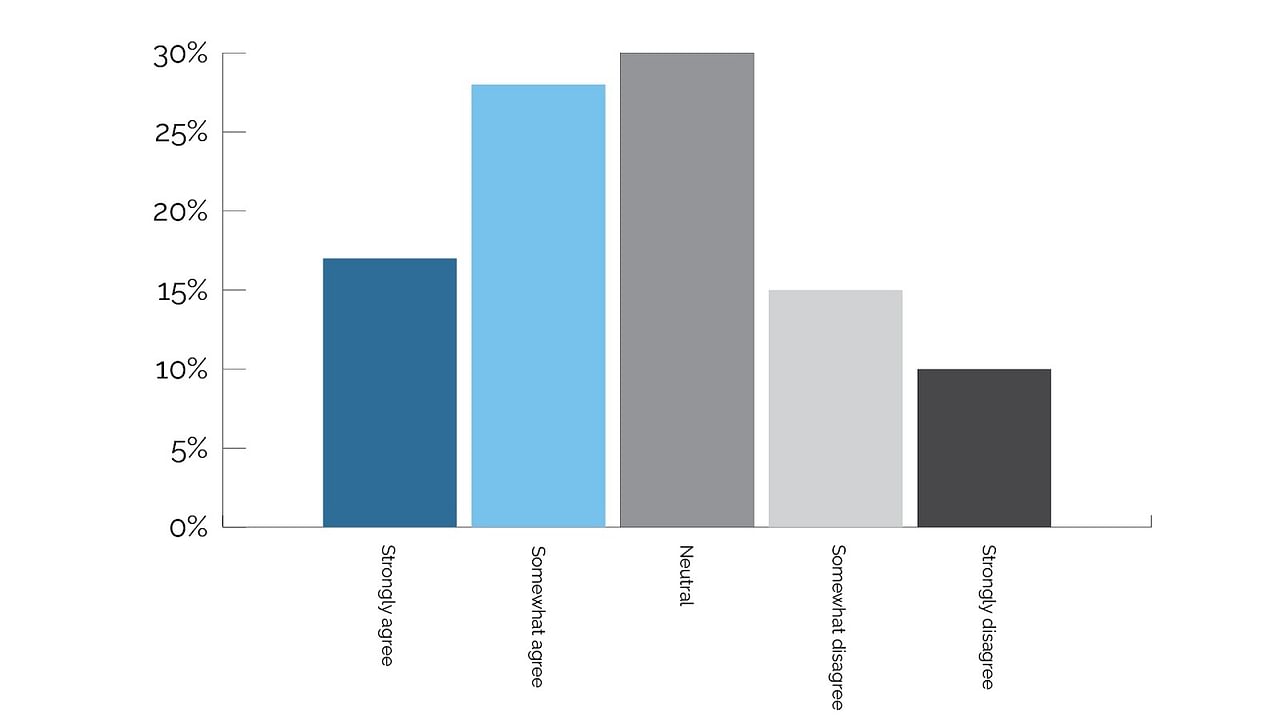
American farmers are capable of producing enough food to feed the world AND produce enough biofuel to meet consumer demand.
The high neutral response (30%) means there is an opportunity to educate consumers and proactively frame the Food Vs Fuel narrative. The high net agreement response (45%) means consumers believe farmers have the capacity to feed and fuel the world. The goal, of course, is to reach consumers who are neutral on the subject.
Agriculture is critical to the economic, social and political stability of our country. That’s why a strong agriculture industry is key to our national security.
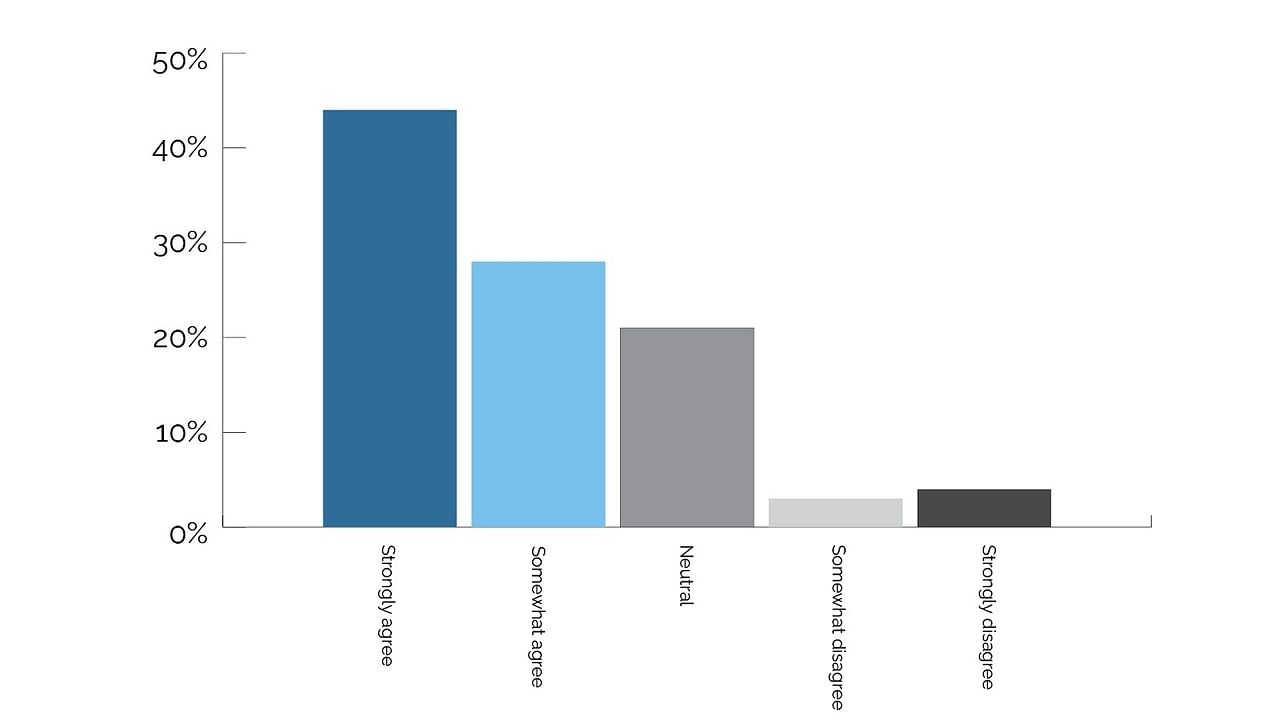
Agriculture is critical to the economic, social and political stability of our country. That’s why a strong agriculture industry is key to our national security.
When the Food Vs Fuel debate is presented as a food security and national security issue, consumers overwhelmingly agree that agriculture is key to the stability of our country. (72% net agreement). Only 21% of the respondents were neutral on this point.
Key Takeaways
The last two years have changed the way consumers think about food.
Consumers are now aware that external global factors have a greater impact on food prices more so than ethanol and biofuels.
The Food Vs Fuel debate should include the farmer’s voice.
American consumers trust farmers and ranchers most when it comes to understanding important issues like food availability and food prices.
Communicate why ethanol and biofuels belong in our nation’s energy portfolio
As renewable plant-based fuels such as ethanol, renewable diesel, biodiesel, sustainable aviation fuel and liquid hydrocarbon, receive more attention and market adoption, it is important to communicate how they benefit Americans in the grocery store and at the pump.
Highlight national security and food security
The War in Ukraine illustrates how food and fuel can become weaponized against populations. As a result, consumers understand the importance of supporting a strong agriculture industry here in the United States.
To learn more about the Paulsen Food Vs Fuel Consumer Survey, contact: Mark Smither, Chief Strategic Officer, mark.smither@paulsen.agency